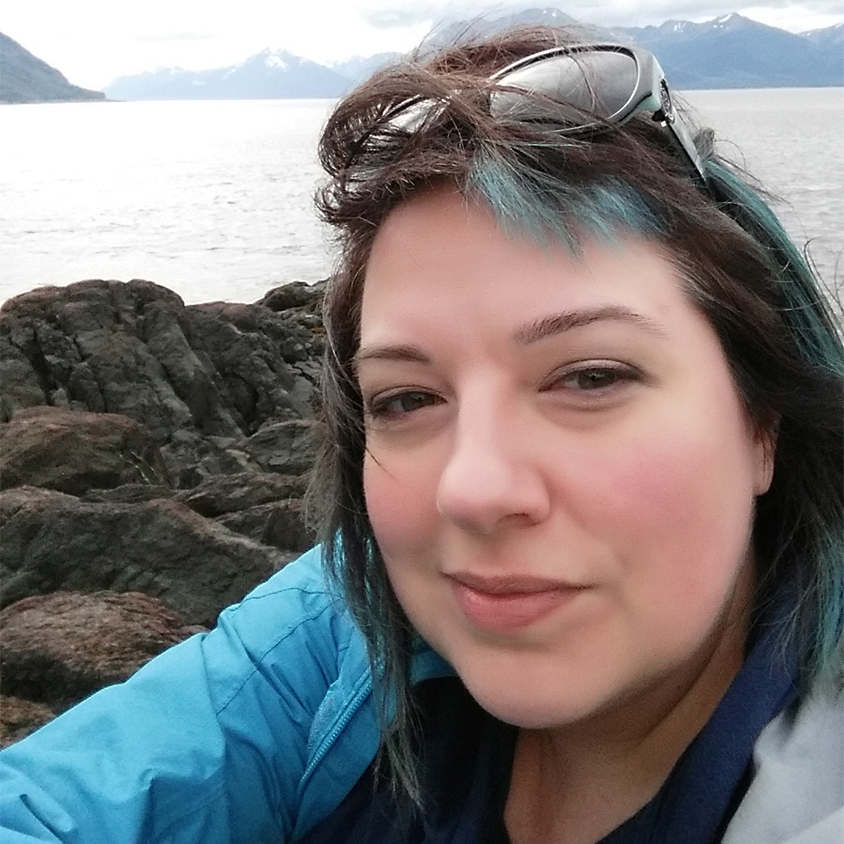 Colorectal cancer took the life of Paneen Petersen’s mother when she was only 45 years old. Paneen was 12 at the time. “I grew up thinking her death was a fluke,” Paneen said. “It wasn’t until years later, when I was working as a health programs administrator at the Alaska Native Tribal Health Consortium, that I realized my mom dying of colorectal cancer was not unique. I could accept it was a personal tragedy for our family, but it was not a fluke – it’s something we see all the time (in Alaska Native populations). It made me indignant, like ‘What’s going on here?’”
Colorectal cancer took the life of Paneen Petersen’s mother when she was only 45 years old. Paneen was 12 at the time. “I grew up thinking her death was a fluke,” Paneen said. “It wasn’t until years later, when I was working as a health programs administrator at the Alaska Native Tribal Health Consortium, that I realized my mom dying of colorectal cancer was not unique. I could accept it was a personal tragedy for our family, but it was not a fluke – it’s something we see all the time (in Alaska Native populations). It made me indignant, like ‘What’s going on here?’”
According to the National Center for Biotechnology Information, colorectal cancer (CRC) is the most frequently diagnosed cancer among Alaska Native people – 30 percent higher than the rate among U.S. white people. From 1969 to 2003, CRC increased 25 percent among Alaska Native people, whereas among U.S. white people, the disease has declined since 1986. Additionally, morbidity rates for Alaska Native people diagnosed with CRC are higher than for other races.
Paneen channeled her grief and indignation into research. She is currently pursuing a Ph.D. in epidemiology at the University of Washington where she studies gene-environment interactions and the risk of CRC. She is expected to graduate in 2018. This research follows a Master of Public Health degree in epidemiology and biostatistics, where she examined CRC survival rates among American Indian and Alaska Native people in the Pacific Northwest.
Epidemiology is the branch of medicine that investigates the incidence, distribution and possible control of diseases and other factors relating to health. Always a serious and science-minded student, Paneen was interested in epidemiology before she knew what it was called. “I earned my bachelor’s degree in anthropology, but I had subscriptions to things like Medscape and Morbidity and Mortality Weekly,” she shared. “When the H1N1 pandemic broke out in 2009, I had the call-in number to the statewide Center for Disease Control so I could hear what all the epidemiologists were talking about.
“Disease isn’t just science; it’s culture and behavior,” Paneen continued. “Epidemiology is the marriage of the two things that excite me most – medical stuff and people.”
Paneen is an advocate for community-based research, which differs from community-placed research. Community-placed research involves “researchers who are interested in a population for data purposes, but whose findings may not necessarily be of use to that community,” Paneen said. Community-based research is a collaboration between researchers and community members, which seeks as its goal social action and social change for the purpose of achieving social justice.
Paneen grew up in Anchorage and still considers Alaska home, though she currently resides in the Seattle area due to school. A CIRI shareholder of Iñupiaq descent and a former CIRI Shareholder Participation Committee member, she is connected to CIRI through her mother, the late Gretchen Petersen of Kotzebue, Alaska; her father, who hails from Nebraska, is of Danish and German ancestry.
“My goal is to come back to Alaska,” Paneen said. “I want to lead research design with our own community members.”
Paneen is grateful to have received funding from The CIRI Foundation (TCF) for each year of her Ph.D. program. “I wouldn’t be able to do what I do without money from TCF,” she said. “I actually worked for TCF as a program officer for four years (2000-2004), and I learned a great deal. It really gave me a leg up on funding. The application process isn’t about jumping through hoops; they really want to see you succeed.”
Paneen is passionate about CRC screenings for everyone, especially Alaska Native people. “Alaska Native patients should begin screening for CRC at age 40 rather than 50,” she said. While colonoscopies are the “gold standard,” there are other screening tests if colonoscopies are not available in your area.
“There are lots of challenges in Alaska – limited access to screenings and a population that’s high risk. And also fear,” Paneen said. “I will tell you that I’ve had five colonoscopies, starting at the age of 30. Twilight sedation during the procedure is an option. It’s really not that bad; I actually opted to stay awake during my last four. Remember that the screening isn’t just about you – it’s for your family, too. With proper screening, colorectal cancer is a disease that’s almost completely preventable.”
For more information on colorectal cancer screening, please visit the following resources:



